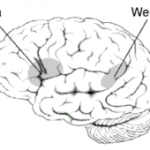Homework 4
Meg Collier, Kiara Grant, Julia McGonigal, Drew Gasparini, Jacob Hanawalt
Page 444, #14:
- Some Caribbean English dialects do not have specific sounds; instead the sounds [t] and [d], respectively are substituted, for example, both [bo t], there [d r].
Semantic. Many dialects of English have multiple negation, as in I didn’t see nobody take no pictures.
- Many American dialects have the mid back lax vowel. However, this vowel is produced very differently in different dialects– some are more rounded, some less so; some are higher or lower than others.
- Names differ from place to place to refer to an insect that glows in the dark, including firefly, lightning bug, glow worm, and fire bug.
- Some African-American English dialects do not mark the third-person singular present tense with a suffix, for example, he kiss, she see, it jump.
- In some southern and midwestern dialects of American English, there is no distinction between [I] and [ ] before nasals; only [I] occurs. So for the words pen and pin, which are pronounced [p n] and [pIn], respectively, in many other American English dialects, the pronunciation is [pIn] for both words.
Page 445, #16:
- The dog is falled asleep: non-native
- Everyone opened their books: natural
- My shirt needs cleaned: some
- Ever since he lost his job, he be sleepin’ all day long: some
- You shouldn’t ought to put salt in your coffee: some
- You usually go to the one you want, but me never: some
- You can see the cops like they’re grabbing kids left and right: natural
- He didn’t have no book: some
- I want for you to go home: some
- Me and Sally played all afternoon: natural
- Noodles, I can’t stand in chicken soup: non-native
- There’s nobody can beat her at telling stories: non-native
- Of whom are you speaking?: some
- Them tomato plants won’t live: some
- So don’t I: non-native
Page 446, #17:
- Bucket
- Bag
- Blinds
- Soda
- Lightening Bugs
- On line
- Straighten it up
- You Guys
- Quarter to 5
Jacob:
Page 444:
- phonological
- Semantic
- phonetic
- syntactic
- morphological
- phonetic
Page 445:
- Non-native
- natural
- non-native
- some
- some
- non-native
- some
- some
- non-native
- natural
- natural
- some
- natural
- some
- some
Page 446:
- Bucket
- bag
- blinds
- soda
- fireflies
- in line
- straighten it up
- you guys
- a quarter to
Page 479
#1 Politeness, speaker roles, and turn-taking rules are some competencies that are part of communicative competence. An example for politeness could include lexical, morphological, and pragmatic grammar. Speaker roles include being aware of who you are talking to. For example, someone will speak differently to friends than they would to a boss or a stranger. Turn-taking includes how long we wait to begin talking after someone else is finished speaking. All of these competencies are culturally determined.
#2 A phrase or “utterance” that native speakers naturally respond to with a corresponding phrase or utterance. The response isn’t necessarily a direct answer.
Ex. Part 1 (question):Part 2 (response):
What’s happening?Not much. You?
Are you free Saturday?Sure. Want to go to a movie?
How’s it hanging? That’s a really weird question. Please don’t say that.
Do you want some gum?Sure, thanks.
WHAZAAAAAAAPPP? WHAAAZAAAAAAAAAPPP?
#3
Pg. 480 #15
Power relationships can be established by people’s use and interpretation of language. For example, people can persuade others to vote a certain way, educate students, and calm people down if they are upset. Linguistic cues can also create power relationships, for example, someone could have dominance in a conversation, and they are asserting their power in the conversation. One person could be a more aggressive speaker. The content of what the speakers are saying can also establish power relationships.
Page 482-#28
- Etic: As the two young males approached, they looked into each other’s eyes briefly, lowered their heads slightly while maintaining eye contact, grunted, and continued on their respective paths.
Emic: I nodded and said “hey” to my friend as we passed each other.
- Etic: I poured hard, small crescents into a ceramic, hollow half-sphere, poured water on top of it and put it inside of a box. The box make a whirring noise for a few minutes, then beeped, at which point I took the ceramic half-sphere out. I poured a yellow powder over the now-soft crescents and stirred. I then put the crescents in my mouth using a four pronged metal instrument.
Emic: I ate microwavable macaroni and cheese with a fork.
- Etic: The older person walked in front of the younger people, speaking into a bulb that amplified his voice. The younger people fell into silence and stared at the older person as he spoke.
Emic: The professor spoke into the microphone, shushing the class and beginning his lecture.
Page 482 #29
Explain the difference of passive observation and participant observation, and give an example of each.
The difference between passive observation and participant observation is that passive observation is lived without observing an event in the moment. The passive event is observed (similar to an outsiders perspective) and the participant observation is when an individual is actively participating in a moment or idea. An example of a participant observation is watching how much sugar an individual puts in their coffee at Starbucks. An example of passive observation is observing how a student goes about asking a teacher a question. What the steps of communication are, and how the question comes up or develops during lecture.
Page 557 #14
We pronounce “knight” without the <k> sound because it represents a phonetic change. This is a change in which we pronounce letters and words differently than how they were originally spelled. This change has no effect on how the word was originally spelled; only the pronunciation changes.
Page 561 #22
Some other aspects of English Morphology that have fluctuation and variation are seen in sentence structure like: Talk, talked, he will talk, he did talk. Different tenses can be spoken within different context of sentences.
Page 562 #29
- Words: bit, cookie, bug, booting, Java, Linux, ping, spam, virus, worm. All of the words, except one or two, seem to be old words that have been put to new use. This might be the general case because it is easier to relate some new idea metaphorically or anecdotally to something we already know and understand than it is to come up with a whole new term for it. By giving an old word a new meaning you are facilitating people’s’ understanding of the new concepts.
- We believe that most of these words are taking on a semantic extension. We feel this way because the boundaries of the contexts the words can be used in is expanding. The words may have previously been associated with something, and now they are associated with these computer concepts as well, and are able to be used to talk about both.
Page 563 #33
- Cynic used to mean, “dog-like, or currish.” We believe the word Cynic underwent a semantic reduction, because the word went from referring to anything as “dog-like” to referring to an individual as being selfish. The connotation stayed about the same, but the word is now used more specifically.
- Hacker used to refer to someone who would hack things to pieces or chop things up. We believe the word hacker underwent a semantic degradation, as the word went from referring to someone chopping, hopefully, plants up, to referring to someone doing harm via a computer.
- Anecdote used to refer to things unpublished. We believe the word anecdote underwent a semantic elevation. The word went from referring to any unpublished work, as it is, to referring to a story that catches interested on its own. The word now has a more positive meaning, rather than just referring to any boring writing.
- Grotesque used to refer to unpolished painter’s work. We believe the word grotesque underwent a semantic elevation, because the word went from referring to unpolished painter’s work, to referring to something as being fantastically extravagant or bizarre.
- Parakeet used to refer to a parrot. We believe the word parakeet underwent a semantic reduction, as the word went from referring to a parrot in general, to referring to any of several small typically green parrots.
- Leer used to refer to side glances. We believe the word underwent a semantic degradation, as the word went from simply referring to glances, to now referring to those same glances, but viewed as sly or of immodest desire.
- Captivated used to refer to bringing something into captivity. We believe the word underwent a semantic degradation, as it went from referring to something being brought into captivity in general, to referring to something or someone being taken prisoner, or being captured.
- Paisley used to refer to a town in Scotland that was famous for producing textiles and shawls. We believe the word underwent a semantic elevation, as it went from referring to the town itself, to referring to a pattern found on clothes and other objects that is associated with the town.
Page 513, #12:
There are many words that we use in the English language that is borrowed from French, yet we still manage to keep our own language. For the most part, many people don’t know that some words such as “voyage,” “ticket” or “proposition” are taken from French and are only pronounced differently. Many words are sound similar and have the same meaning. Beef in French is “boeuf” and flower is “fleur.” There are many borrowed words from other languages such as Spanish. Whether one language is borrowing from English, vice versa, we don’t believe that it is threatening a language, for it will always be its’ own language. The only way that there will be any sort of “threat” is if there is some sort of contact language that is created between the main language and another one and the popularity grows. Then again, many of our vocabulary words sound similar or borrowed from another language because Spanish, German, English, French are descents of Germanic Language.
Page 516, #22:
You can really understand the beginning and the end, but the middle part when it says “So nou… wan de… bra hanasi, yu no hou him triki aredi… i tel bra taiga mek dem go pik… maami.” In this part, there are some comprehendable words, but as a whole it is not very clear. “Wans apan a taim dier waz bra hanasi a bra taiga.” It is very clear that they are starting with “once upon a time” and is introducing the main characters Anasi and the Tiger.
#23:
This story is more clear than the Belize Creole. A lot of the story is what would be considered “not written in proper syntax” but that is their language so how it is said and written is normal for them. The first sentence is not super clear but you know that it involves a guy and a hospital. “Keiki” means kid/child in Hawaiian. So after the first sentence, you can understand that the main character is telling the story of a kid telling another kid to get him ice cream. The kid didn’t want to go so he said that he would go for money. The last sentence is saying “Wasamala wid heem,” where he’s saying “What’s the matter with him.” “He no can say ‘Me I stay broke?”-”He can’t say “I’m broke?”
p.517, #29:
For the a couple of hundred of years, colonists have taken away the language and culture of the Native Americans who were on this land first. They have dominated with the cultures that they have brought over to a point where the native’s language has died, for they were forced to learn and speak in English. If anything, we as a country owe it to the natives to practice their language, although it may be hard now for their ancestors barely got to teach and speak it with the surviving people nowadays. Not only has language died in America, but all over the world, especially dialects. Some dead languages include: Biblical Hebrew, Sanskrit and most famously, Latin. Latin is important because many of the words in the English language still use Latin roots, although not many people speak it fluently nowadays, if not, none at all. Knowing how to speak Latin helps you have a deeper understanding of words in English. Many dead languages are those that were related to religion. It could be worth bringing back if people were willing to learn, but that would only apply to the religious groups because some of those languages were Old Church Slavonic and New Testement Greek. Many of the dead languages probably died out too because they didn’t apply to many people and didn’t have much use after a certain amount of time.
By doing homework 4 we saw how language, time, and space all change over time. The changes that occur happen extremely slowly over thousands of years and extensive time periods. For example, when Germanic peoples from thousands of years ago migrated to Britain, their languages merged with the Celtics’ dialects and English was created. Not only did the languages shift regions over time, the languages themselves changed as well.




 D5 Creation
D5 Creation
Comments are Closed